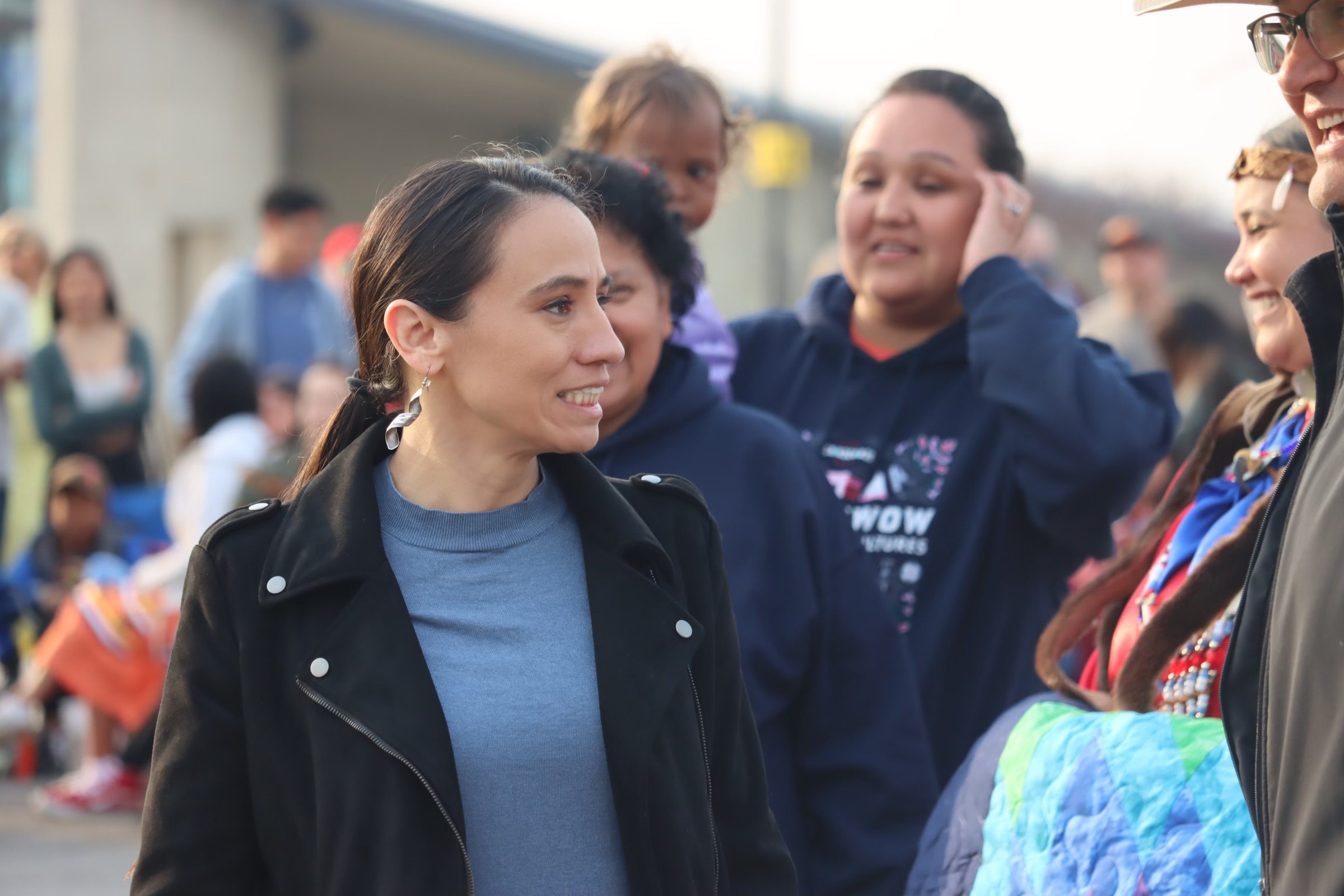
- Details
- By Darren Thompson
U.S. Representative Sharice Davids, a Ho-Chunk Nation tribal citizen, was reelected to the U.S. House of Representatives to represent Kansas 3rd congressional district. Davids, a Democrat, flipped a Republication-held seat in 2018 to become one of the first Native American women to be elected to the U.S. Congress in American history.
Davids faced one of the most contested seats in the country in a rematch against Amanda Adkins, a Republican she beat in 2020 by 10 points. The 3rd congressional district was redrawn by the GOP-led Kansas legislature in hopes Davids would be defeated. Davids met the challenge by campaigning hard in a more rural district than she previously represented.
The Associated Press called the race for Davids at 11:06 p.m. - EST. With 93 percent of the vote in, Davids had 55.0 percent; Adkins had 42.8 percent.
According to Sharice Davids for Congress, she was raised by a single mom who spent more than 20 years serving in the U.S. Army. She graduated from Leavenworth High School, and became the first person in her family to attend college working her way from Johnson County Community College to Cornell Law School. While in college, she managed multiple jobs while attending school.
Davids went on to work in economic and community development on American Indian reservations, helping federally recognized tribes create programs and initiatives for economic growth. Her community work inspired her to apply for the White House Fellows program, where she later served in theU.S. Department of Transportation under President Barack Obama and President Donald Trump.
Since serving in Congress, Davids has become a champion for Indian Country. She was elected to her third term on Tuesday.
More Stories Like This
Native News Weekly (August 25, 2024): D.C. BriefsUS Presidents in Their Own Words Concerning American Indians
Star-Studded Livestream to Boost Native News Online’s Year-End Campaign
Monday Morning (December 8, 2025): Articles You May Have Missed This Past Weekend
Native News Weekly (December 7, 2025): D.C. Briefs
Help us defend tribal sovereignty.
At Native News Online, our mission is rooted in telling the stories that strengthen sovereignty and uplift Indigenous voices — not just at year’s end, but every single day.
Because of your generosity last year, we were able to keep our reporters on the ground in tribal communities, at national gatherings and in the halls of Congress — covering the issues that matter most to Indian Country: sovereignty, culture, education, health and economic opportunity.
That support sustained us through a tough year in 2025. Now, as we look to the year ahead, we need your help right now to ensure warrior journalism remains strong — reporting that defends tribal sovereignty, amplifies Native truth, and holds power accountable.
 The stakes couldn't be higher. Your support keeps Native voices heard, Native stories told and Native sovereignty defended.
The stakes couldn't be higher. Your support keeps Native voices heard, Native stories told and Native sovereignty defended.
Stand with Warrior Journalism today.
Levi Rickert (Potawatomi), Editor & Publisher
